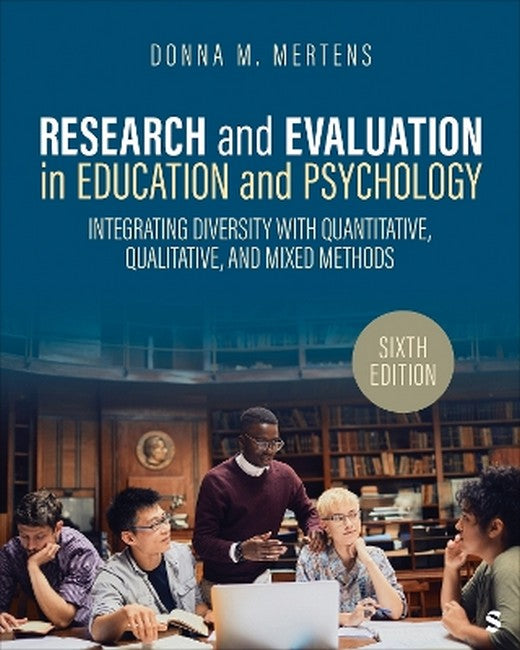Chapter 1 * A Brief History of Research: Paradigms, Ethical Practice, and Contested Territory Chapter 2 * Evaluation Chapter 3 * Focusing the Research: Literature Review and Community Engagement Chapter 4 * Experimental and Quasi-Experimental Research Chapter 5 * Causal Comparative and Correlational Approaches Chapter 6 * Survey Methods Chapter 7 * Single-Case Research Chapter 8 * Qualitative Research and Action Research Chapter 9 * History, Narrative Inquiry, and Autoethnography Chapter 10 * Mixed Methods Research Chapter 11 * Sampling Chapter 12 * Data Collection Chapter 13 * Data Analysis, Interpretation, and Use
Request Academic Copy
Please copy the ISBN for submitting review copy form
Description
"Mertens's Research and Evaluation text is a well-rounded textbook that students enjoy reading because the ideas are presented in such a way that they connect to each student's area of study. If you want your students to read the chapter, this is the research methods book for your class." -- Karen H. Larwin "A methods text grounded in research that describes in detail the history behind different methodologies and their historical underpinnings. It has a wide range of study samples to help students make sense of the content." -- Erin M. Ramirez "Good survey text for research methods" -- Sawyer Hunley "A very good and resourceful book for training scientist-practitioners in the mental health profession." -- Allen Appiah-Boateng "This is a solid master's level introductory textbook that addresses the material that helping professionals need to be able to work in the field and to be able to evaluate and consume current research." -- Brenda Gerhardt "This book provides many good examples/research studies that can be used in classroom discussions." -- Chia-Lin Tsai "The author does an excellent job utilizing various features (e.g., charts, tables, checklists, 'extending your thinking,' textbox, critical questions, research and evaluation examples) that facilitate reader learning, engagement, critical reflection on gained knowledge and various aspects of the research process, commitment to quality and ethics in research, and willingness to make connections and extend one's thinking. It is well-written and organized, concise, and straightforward." -- Elena Yu. Polush

